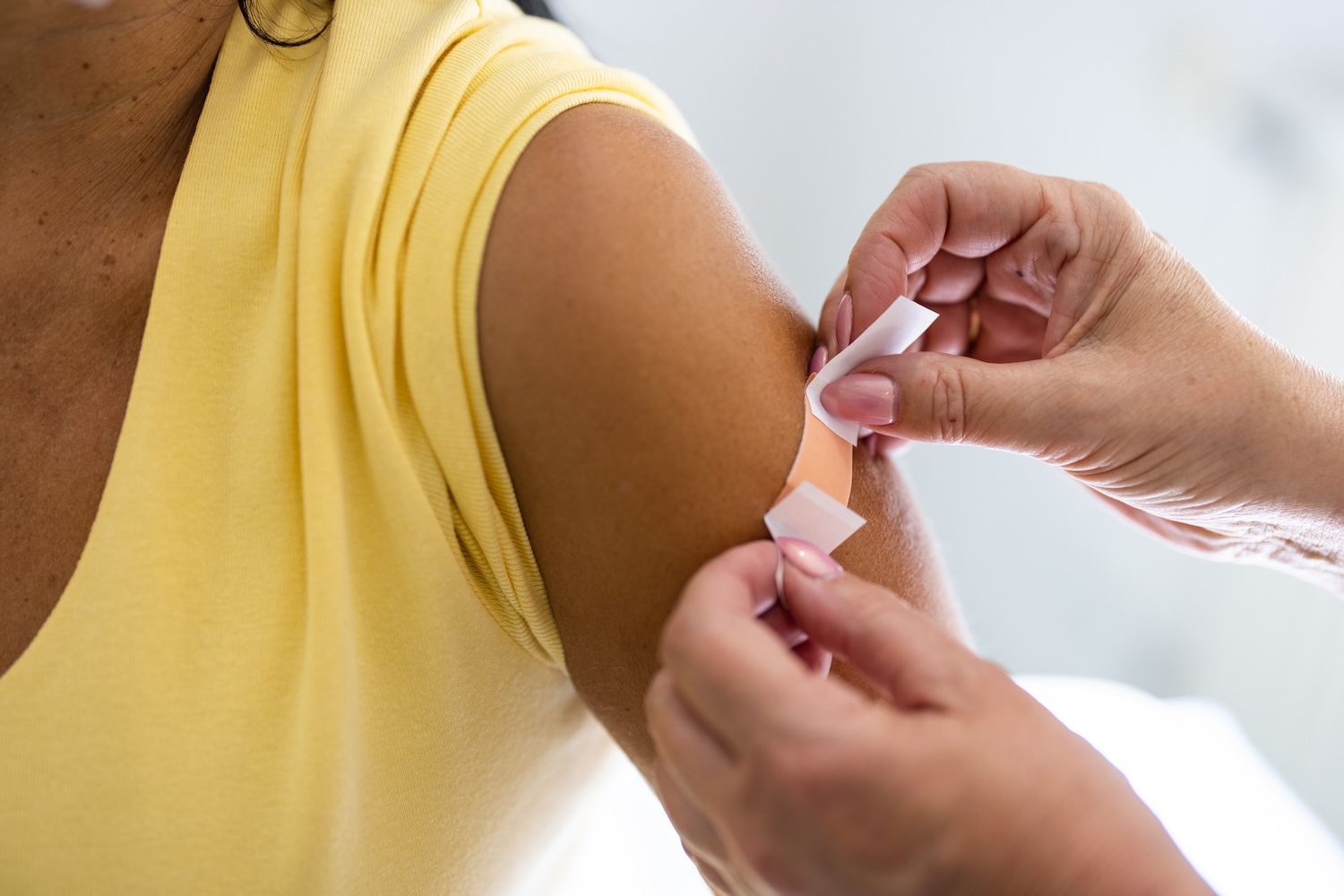

LLUH CFO Angela Lalas is all smiles after getting her flu vaccine
As fall arrives, so do the annual concerns over respiratory illnesses, including influenza, COVID-19, RSV, and the common cold.
While exact predictions are difficult for how severe the flu season will be, Richelle Guerrero-Wooley, MD, an infectious disease expert, says that this year’s flu season will likely look similar to last year’s in terms of illness and hospitalizations.
From October 1, 2024, to May 17, 2025, the U.S. Centers for Disease Control and Prevention (CDC) estimated that 610,000 to 1.3 million flu-related hospitalizations and 27,000 to 130,000 flu-related deaths occurred. Additionally, from October 1, 2024, to September 20, 2025, the CDC estimated 380,000 to 540,000 COVID-19-related hospitalizations and 44,000 to 63,000 COVID-19-related deaths.
“Vaccinations continue to be the best protection,” Guerrero-Wooley says.
Keeping vaccinations current helps protect both children and adults, thereby lowering the risk of illness and strengthening the overall health of the community.
Flu
Getting the flu vaccine as soon as possible means being protected throughout the flu season. There are also different types of flu vaccines available, with some formulations being better suited for older adults or those with underlying health risks. For example, high-dose flu vaccines have been shown to reduce hospitalizations among adults aged 65 and older.
“Talking with your doctor about which vaccine is right for you is especially important if you fall into a higher-risk group,” Guerrero-Wooley says.
Flu symptoms
-
High fever
-
Dry cough
-
Fatigue
-
Body aches
If you have trouble breathing, your fever lasts more than three days, or if you are at higher risk for complications, seek immediate care. Antiviral treatments can help, but they are most effective when started within the first three days of symptoms.

COVID-19
Although COVID-19 may feel less prominent than in past years, Guerrero-Wooley says it still poses serious risks for certain groups.
“The summer spike of COVID-19 cases highlights that the virus has not disappeared. Staying current on vaccines remains an important protective step,” she says.
While California and other states have released their own vaccine recommendations, the key message remains the same: vaccination is strongly advised for those at higher risk of severe illness.
Highest risk for severe COVID
-
Adults over 65
-
Pregnant people (particularly in the third trimester)
-
Infants and young children
-
Individuals with chronic health conditions or weakened immune systems
RSV
Once thought of as a threat primarily to infants –– especially preemies –– respiratory syncytial virus (RSV) is now recognized as a risk for people aged 60 and older.
“A single dose of the RSV vaccine has shown that those who received the vaccine experienced fewer lower respiratory tract infections, such as viral pneumonia and other complications related to RSV,” Guerrero-Wooley says.
For infants, maternal vaccination during pregnancy or direct infant immunization can help protect against severe RSV in the first months of life.
Pneumonia
One often-overlooked vaccine is the pneumococcal vaccine, which protects against pneumonia.
“Respiratory viruses often pave the way for bacterial pneumonia,” Guerrero-Wooley says. “For that reason, doctors recommend eligible patients stay up to date on pneumococcal vaccines, such as PCV20.”
This is especially important for older adults, individuals with chronic lung disease, or other conditions that weaken the immune system.

The common cold
Although there is no vaccine for the common cold, prevention is still key. Guerrero-Wooley says that maintaining good habits can limit its spread:
-
Wash your hands frequently
-
Cover coughs and sneezes
-
Stay home when sick
-
Wear a mask in public if you have symptoms
-
Improve ventilation at home, such as opening windows to let fresh air circulate
To learn more about protecting yourself and your family, visit our flu page here and our COVID-19 vaccine and treatment page here.



